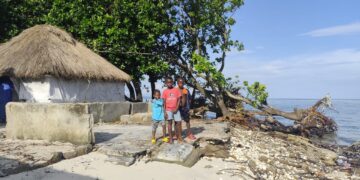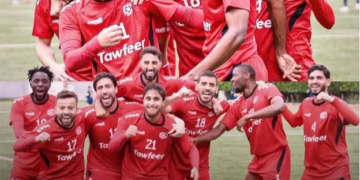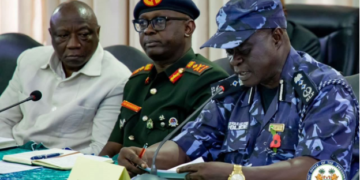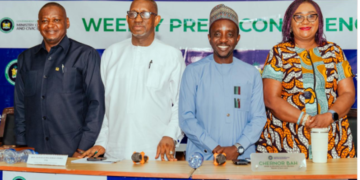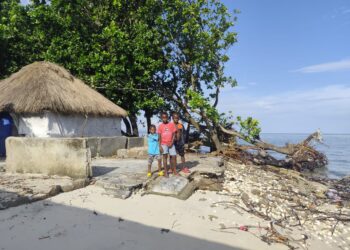By Alpha Amadu Jalloh, author of Monopoly of Happiness: Unveiling Sierra Leone’s Social Imbalance.
The belief that ordinary Sierra Leoneans are powerless has become deeply embedded in our society, not because we lack knowledge or awareness, but because our political and social structures have systematically disempowered the people. This false perception of powerlessness is not natural; it was created, nurtured, and weaponized by those who benefit from it the most: the people in power.
Even the unlettered Sierra Leonean, the market woman in Kailahun, the okada rider in Bo, or the fisherman in Bonthe knows deep within that he or she is entitled to demand accountability, to say, “This is not right,” and to envision a better future. However, the systems we live under have done everything to silence, suppress, and scatter this collective power.
Sierra Leone’s political landscape is dominated by families and figures who trace their influence back to colonial times. Many of today’s political leaders are descendants of those who benefited from colonial structures and continued to maintain those advantages post-independence. These political dynasties have created an environment of fear, dependency, and psychological bondage, where people are made to believe that power is reserved only for the privileged few.
It is not uncommon to hear people say, “That’s how the system is,” or “We can’t change anything.” This defeatist attitude is the result of years of manipulation, economic suppression, and elite control. The average Sierra Leonean has been made to feel like a spectator in their own democracy, a voter during elections, but voiceless for the rest of the term.
This was not always the case. Our history has shown moments where the collective will of the people triumphed. From the days of Bai Bureh’s resistance against colonial taxation to student protests in the early 1970s, we have seen that when Sierra Leoneans unite, they can shift the tides. However, those in power have learned from these moments too. They now use more subtle tools—corruption, misinformation, divide-and-rule tactics, and institutionalized poverty—to keep the people weak and disconnected.
One of the most dangerous outcomes of this strategy is the commodification of loyalty. Young people who should be championing change are forced to dance to the tune of the elite, not because they lack ideals, but because they lack opportunities. Many are co-opted into systems that reward sycophancy and punish integrity. They sell their birthright, not because they want to, but because survival demands it. What else can they do when jobs are reserved for those who pledge allegiance to political parties, and contracts are given not on merit, but on favoritism?
We have created a nation where being honest is seen as naïve, where resistance is mocked, and where dreams are traded for crumbs.
But history teaches us something powerful: the power of the people is always greater than the people in power.
It was not presidents or parliaments that ended apartheid in South Africa; it was the people. It was not monarchs or ministers who brought down the Berlin Wall; it was the people. Across the globe, from Tunisia to Chile, ordinary citizens have changed the course of their nations when they stood together.
In Sierra Leone, this power remains dormant but not dead. The spirit of resistance, the hunger for justice, and the hope for a better future are still alive. You can hear it in the voices of young artists who speak truth through music. You can see it in the work of journalists who risk their lives to expose corruption. You can feel it in the determination of civil society actors who continue to push for reforms, even when the odds are stacked against them.
What we need now is a national awakening, a collective realization that we, the people, are not powerless. We are not voiceless. We are not bound by the chains of the past. We have the numbers, we have the will, and we have the right.
But reclaiming that power requires courage. It requires us to say “No” to systems that exploit us. It requires us to reject leaders who see public office as a personal investment. It requires us to stop normalizing mediocrity and start demanding excellence. It requires us to invest in our young people, not just with slogans, but with real opportunities for education, entrepreneurship, and leadership.
We must also redefine what leadership means. Leadership is not about how many times you’ve been to parliament or how many honorary titles you hold. True leadership is about service, humility, vision, and empathy. It is about listening to the cries of the people and responding with action, not empty promises.
The people of Sierra Leone must begin to see themselves as the real custodians of power. Every vote cast is a voice, every protest a message, and every civic act a tool of transformation. We must stop outsourcing our destiny to those who have proven, time and again, that their interests lie not with the masses, but with the maintenance of their status.
To the youth: you are not just the future, you are the present. The time to act is now. Do not let anyone make you feel like your voice doesn’t matter. Do not trade your integrity for temporary rewards. The struggle may be long, but victory belongs to those who endure.
To civil society: continue to speak truth to power. You are the conscience of the nation, and your voice is needed now more than ever.
To our elders: guide us, don’t silence us. Share your wisdom, not your fear. We need your experiences to light our path, not your resignation to dim our hope.
And to those in power: remember that your authority is borrowed, not permanent. You are not kings; you are servants. Serve with dignity, or step aside.
As the African proverb says, “No matter how long the night, the day will surely come.” That dawn is coming in Sierra Leone. The people are awakening. The silence is breaking. The tide is turning.
It is time we believe again. It is time we rise again. It is time we remember that the power of the people is, and always will be, greater than the people in power.


